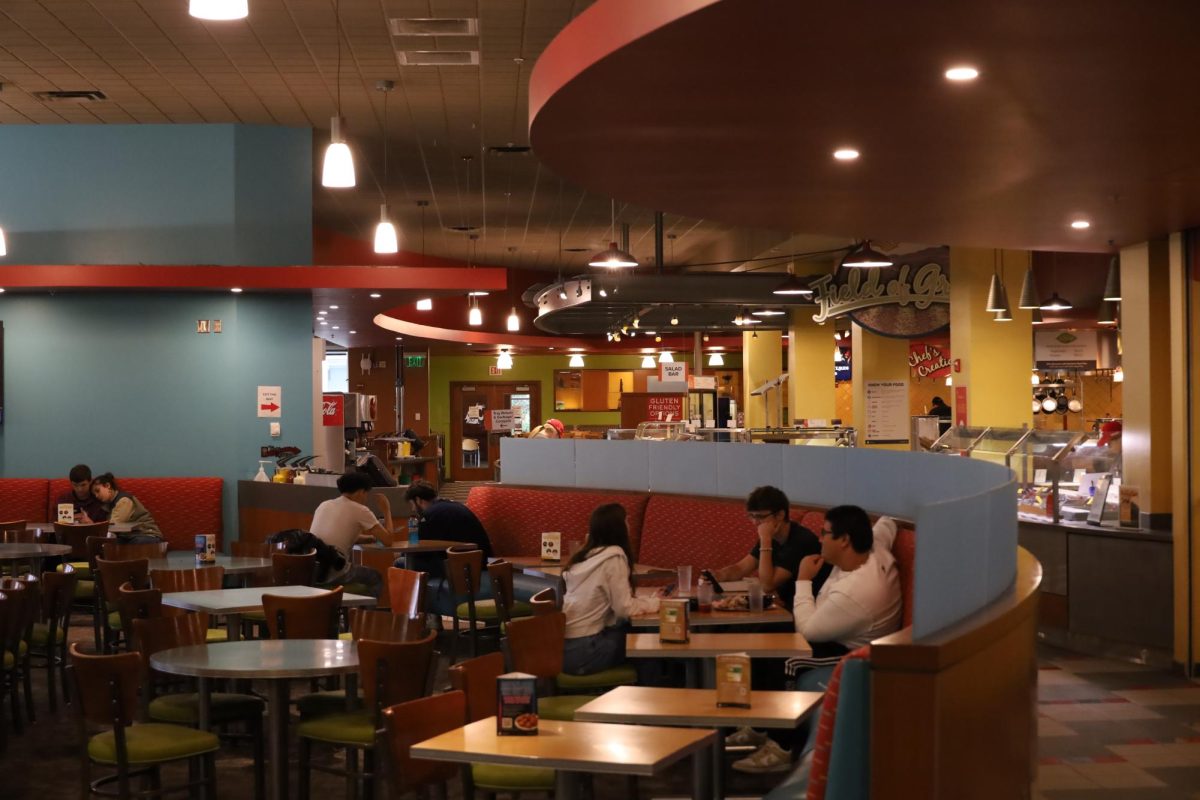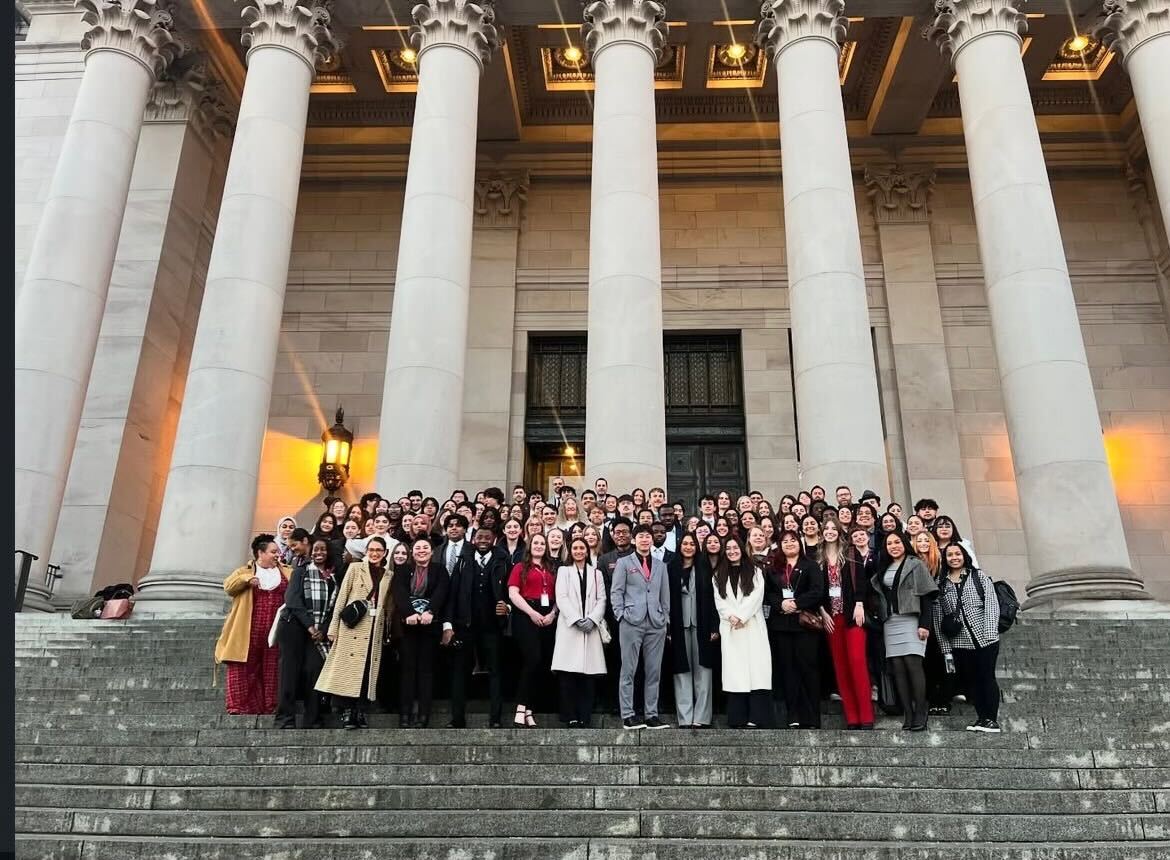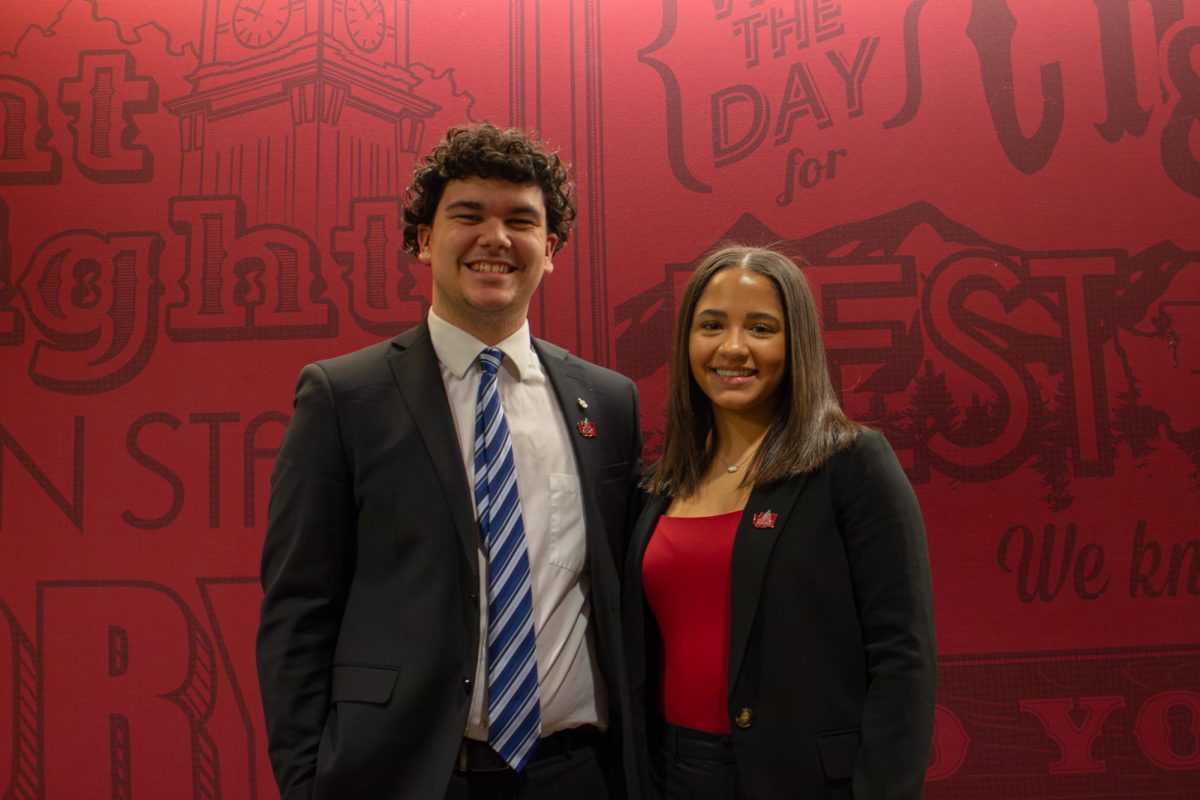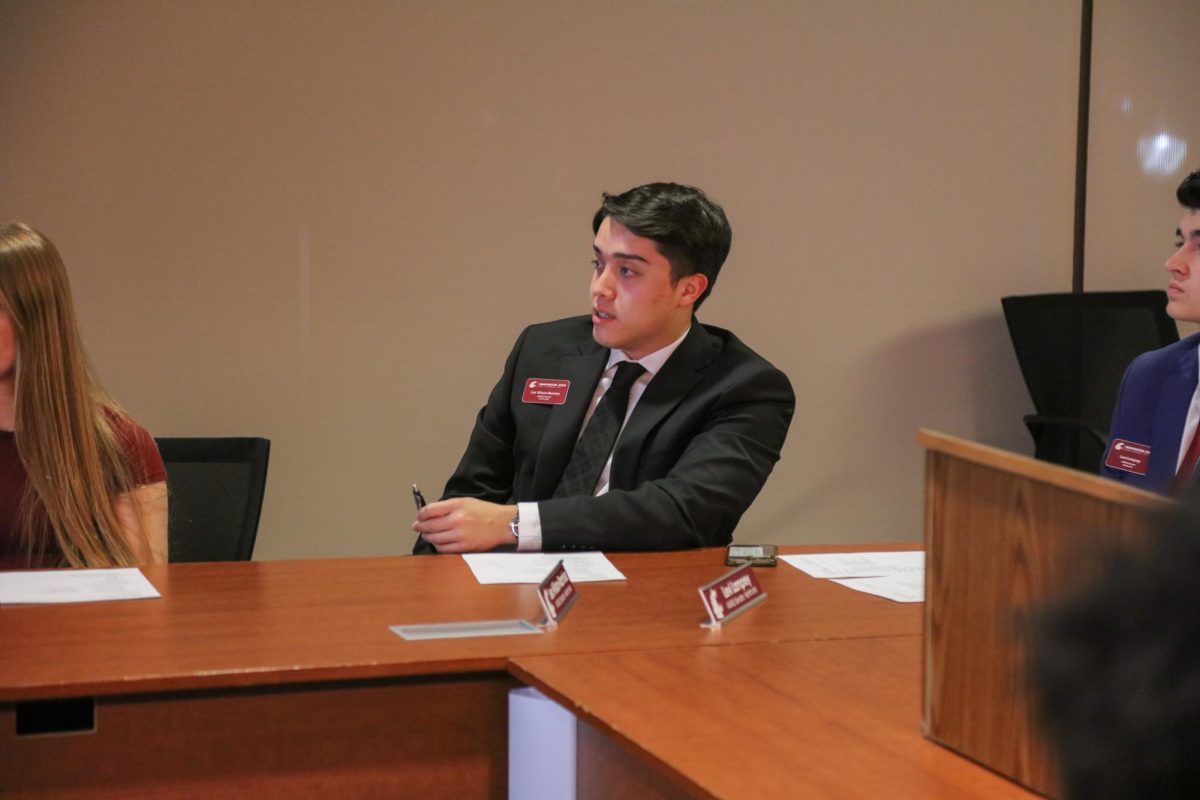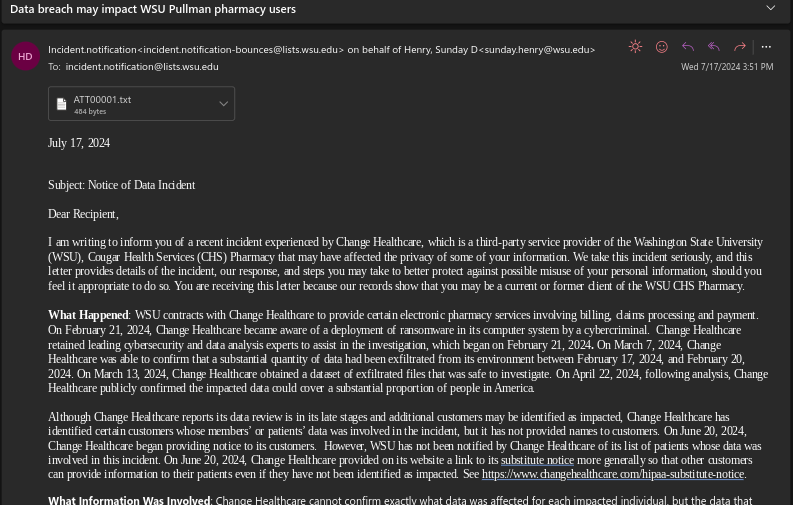In an effort to reduce waste and increase sustainability on campus, Northside Cafe has stopped providing single-use containers and has switched to reusable containers.
Topanga, the company that provides the reusable containers, reached out to the Environmental Sustainability Alliance on campus last semester and worked alongside the university to provide the containers at Northside Cafe this semester, ESA chair Stephen Fawcett said.
In order to check out the reusable containers, students must register themselves on the ReusePass website under WSU to receive their own personal QR code that they can screenshot or keep in their Apple Wallet. Each reusable container also comes with its unique QR code, said Daniel Aherin, Northside Cafe general manager.
When checking out a container, both the student’s QR code and the container’s QR code must be scanned. There are drop-off locations at Northside Cafe and the other dining halls for returning the containers, Fawcett said.
If a container is not returned within a three-day period, a student will be charged an $8 late fee on their account, similar to a rental fee, Aherin said. Half of the proceeds from the late fees students pay will go toward supporting other sustainability programs on campus.
Aherin said this is the second time that WSU has tried to implement a reusable container program with a different company.
Before the pandemic, the university tried implementing a token-based system of reusable containers, which was inconvenient and difficult for students to use. The primary reason for switching to the reusable containers was both to increase sustainability and to reduce costs.
“From a cost perspective, it was a substantial investment to purchase enough reusable containers to make this feasible,” he said. “But we eliminated a pretty substantial monthly expense of having to buy disposable to-go containers every month.”
Aherin said he believes that the implementation of the reusable containers will not only benefit the university from an economic perspective, but also from an ethical one due to increased sustainability. Northside Cafe has also eliminated plastic cutlery and all disposables, besides hot cups for soups.
“I was real adamant that if we were going to go this route, that we go all in,” Aherin said.
ESA secretary Abigail Owens said there are currently more than 1,500 students registered for the reusable container program on campus. She said they have seen significant student involvement and are hoping to increase the number of users as well as drop-off locations for the containers on campus. Currently, the only drop-off locations are inside the dining halls at the tray returns, or at the drop-off bin outside of Northside Cafe.
“Especially with this being in such early stages, I could definitely see the expansion of more drop-off locations,” Owens said.
WSU students hold various opinions on the new containers. While some believe that the new containers will result in a positive impact for the environment and for students, others believe that the new system is inconvenient.
Sophomore advertising major Daisy Martir said she eats from the dining halls about four times a week. She primarily eats from Northside, because she lives on the northern side of campus.
Martir said while she supports the idea of increasing sustainability on campus, it is inconvenient to have to go back to campus to return the containers she has checked out, and often forgets them in her room.
“I enjoy the sustainability aspect, I just feel like it should be a little more optional for students to use it,” Martir said.
Due to the inconvenience of having to walk back to the dining hall to return her containers, as well as the associated late fee for non-return, Martir said she feels somewhat skeptical of the implementation of the program.
Kyle Johnson, sophomore civil engineering major, said he also eats from Northside Cafe around three to four times a week. Unlike Martir, however, Johnson feels very positively about the new reusable container system.
“Honestly, I’m pretty positive towards it,” Johnson said. “I think it’s a net positive, and it really is pretty easy.”
Johnson said he has few concerns about the way that the program has been implemented and compared the return policy and associated late fee to checking out a library book. He thinks that the university has done a great job at seamlessly integrating the reusable containers into the dining hall and is hopeful about where it might next lead.
“I really appreciate how much thought and effort they’ve put into rolling this out,” Johnson said.
According to Aherin, the present return rate of reusable containers on campus has been as high as 95%. Currently, the university is planning on measuring cost-effectivity, return rate, and student response before deciding whether to implement the reusable containers system at Hillside and Southside dining halls.
Aherin said he hopes that this can become a catalyst for more sustainability efforts on campus.
“Sustainability is meeting the needs of today, without compromising the ability of future generations to meet their own needs,” Aherin said.


